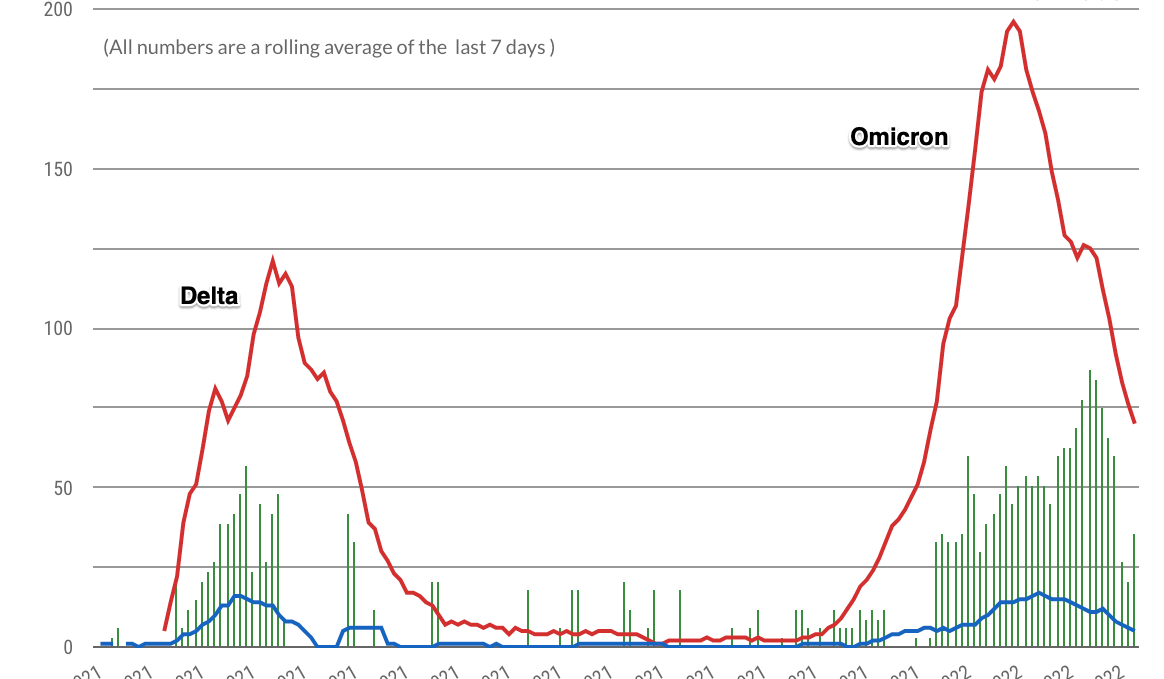MIT Lincoln Laboratory: EN in Simulated Real-World Environments
Wehealth has worked closely with our academic partners and collaborators to evaluate and improve the technology we use and the solutions we build. ...
We live in a world where we have constant access to vast amounts of information. Yet during the pandemic, and for the foreseeable future, many of us still feel uncertain and unclear about who to believe and what specifically to do to make positive change.
That’s why we’re bringing you a new series called Ask the Professor with Dr. Joanna Masel.
Joanna is a Professor at the University of Arizona, where she teaches Evidence-Based Medicine, and Head of Science at WeHealth. Have a question? She’s got answers. Read on to find out more.

Q: Now that vaccines are coming, is it still worth bothering with exposure notification?
A: Contact tracing strategies, including anonymous exposure notification tools, are most important at the beginning and the end of outbreaks. When there are large numbers of cases, as is currently the case, everyone needs to restrict their activity. But when there are few cases, good contact tracing can remove restrictions on most of us, with quarantine targeted just to a few.
Once most people are vaccinated, we can look forward to a more normal world, with far fewer cases. We will then be able to return to many of the things we have missed. But it will be only sort of normal. I expect a long end game, where we play whack-a-mole with outbreak after outbreak that threatens our newly restored, precarious sense of near-normality. No immunity is perfect, whether from vaccination or natural infections. Unfortunately, COVID-19 isn’t going to completely vanish, even after things get better.
We will need exposure notification the most during this end game - not now. But it’s important to get the technology on everyone’s phone, so that it can do some good now, and also be ready when we most need it. Succeeding in doing that will help us reopen faster, and will reduce the frequency and severity of local restrictions during the end game. Effective contact tracing matters most not when everyone needs to behave as though they might be infected - notification doesn’t make much difference to someone who is already staying home as much as they can. It matters more when it again becomes a reasonable option to go back to a more normal life - except for those days after the notification pings your phone.
One reason COVID-19 isn’t going away is that no immunity is perfect. Some vaccines seem close, with 95% effectiveness seen during trials. But it still isn’t 100%. And immunity can wear off over time. The CDC currently recommends that 90 days after you are infected, you should consider the risk of being infected again. New strains of the virus are emerging - currently identified in South Africa and Brazil - that escape, at least in part, the immunity that some people have today. This is why you need a new vaccine every year for influenza. The same thing seems to be happening for COVID-19.
It’s important to remember that even if the vaccine or past infection protects you from experiencing symptoms of COVID-19, you might still get infected asymptomatically. While this isn’t a problem for you, it is a problem for others that you unknowingly infect, especially the medically vulnerable. It’s important to know that you have been exposed to the virus, so you can quarantine and get tested, and avoid passing it on to others. Please get tested after you are exposed to the virus, even if you have been vaccinated or have had COVID-19 more than 90 days ago. And notify your contacts if you test positive, even if you don’t feel sick.
Got a question? Ask the professor: contact@wehealth.org

Wehealth has worked closely with our academic partners and collaborators to evaluate and improve the technology we use and the solutions we build. ...
 Read More
Read More

When driving a car stepping on the accelerator makes the car go faster. Stepping on the brakes makes the car slow down & stop. This happens almost...
